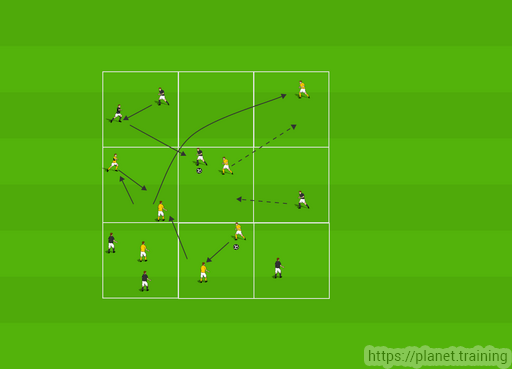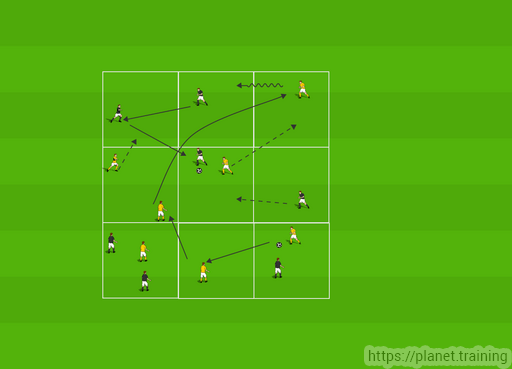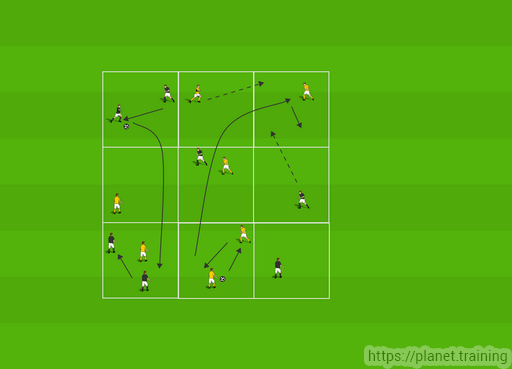By Sean Reed -
Objective
This session focuses changing direction of play. Looking to exploit space, create overloads in order to maintain possession to play forward. Part 1
Session 1
 Diagram 1
Diagram 1
Set Up
- This session can be carried out with different numbers within each team. For the session above the we are using 2 teams of 7
- The area consists of 9 grids, which are 20x15yds each
- 1 ball for each team
- The initial session looks at players passing and moving
- The only constraint on the session is that no more than 2 players (of the same team) can occupy a single grid
- Start with unlimited touches then restrict touches (2-3 touch)
- Then add once a player has played a pass they must then move to a new grid
Coaching Points
- Tempo of play
- Awareness of 1st and 2nd movement
- Body shape to receive
- End product (type of pass)
- Communication
Session 2
 Diagram 2
Diagram 2
Set Up
- Continue with the previous session
- The constraint within this session is no more than 2 players (on the same team) in one grid
- Players must combine before the ball can be switched to another grid
- Once the ball has been played outside the grid, players then move to another area
- Change the restriction on touches
Coaching Point
- Continue with the previous session
- Timing of support for player in the grid receiving the 1st ball
- Rotation with players coming out of area for a new player to come in
- Provide options short and long
Session 3

Diagram 3
Set Up
- As with the previous session.
- The constraints remain with no more than 2 players (from the same team) in one grid
- The ball played from one grid to another cannot be played into a grid that is next to it. It must miss a grid out. See diagram 3
- Encourage the players to play short (to combine), then play long to switch the direction and exploit the space
- Making the pitch bigger and wider
- The player receiving the ball is on 1 touch which will encourage players to support the player receiving and manage their movement and timing of runs
Coaching Points
- As within previous sessions
- Providing options to go long, movement away from the ball
- Type of pass, driven, lofted etc
- 1st touch to set
- Timing of run to support the player receiving the ball
By Sean Reed
Former First Team Coach of Championship side Fulham FC. Sean is a UEFA A Coach with a Masters in Sport Coaching. He has over 15 years of experience working in professional football from Academy through to First team in the Premiership and Championship.
Web - www.seanjreed.com
Twitter - @SeanJReed


